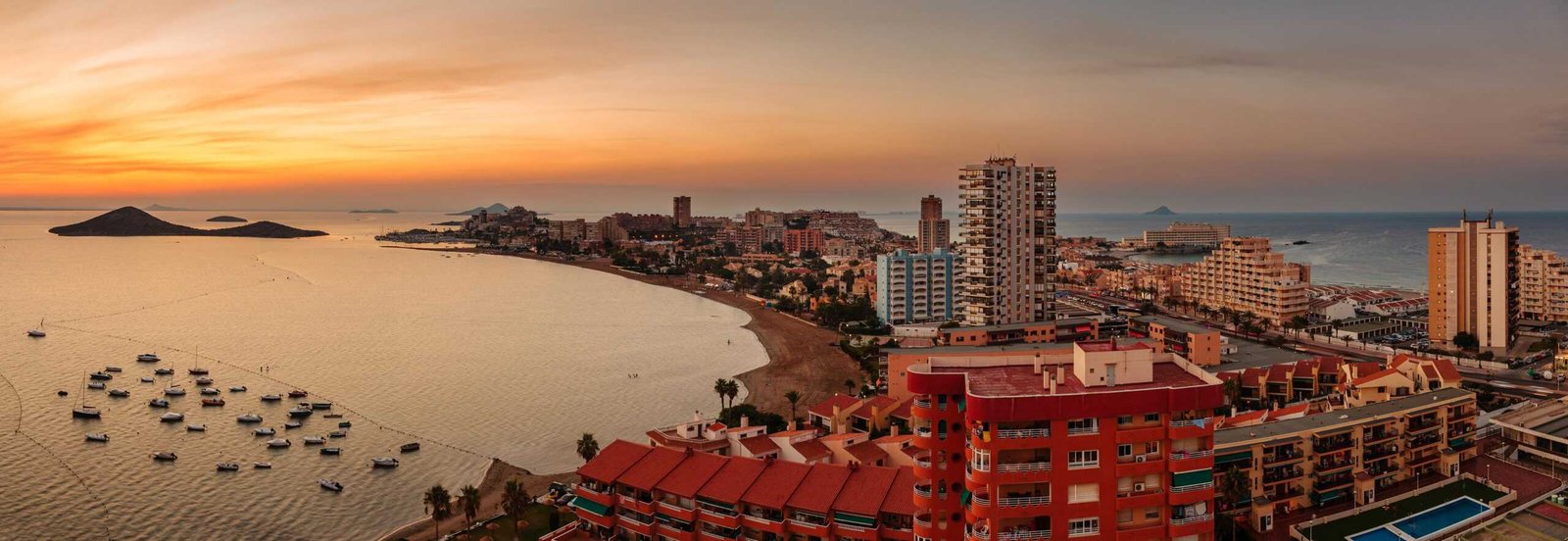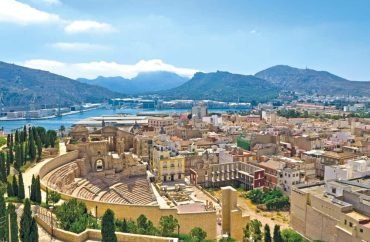Study in Murcia

Why choose for studying abroad in Mucía
Located in the southeast of Spain, the Region of Múrcia is characterized by mild temperatures and long hours of daylight. Beaches, rural areas, cities, traditions, folklore, culture, sports and health mix together in a dynamic and active touristic offer.
Múrcia is the 7th largest city in Spain. As the regional capital, it offers well developed infrastructure and transport systems. It is a safe city that can also be easily explored on foot.
Múrcia is well-connected to the main cities of Spain and Europe by highways, trains and two international airports in the vicinity: Múrcia San Javier (35 min from city center) and Alicante (45 min from city center).
Despite the high quality of life offered by the City of Múrcia, the cost of living is affordable. With about €500 per month a student can cover all the expenses on accommodation, food and leisure activities.
According to popular global travel website, Skyscanner, Múrcia is one of the preferred destinations for Erasmus students. Múrcia is one of the youngest cities in all of Spain thanks to its three university campuses, and everything in the city seems to be made to suit students, so that studying abroad in Múrcia will become a memorable experience.
Cultural life in Múrcia is vibrant because of its rich historical heritage and multireligious environment. You can still find the authentic Spain here throughout Múrcia’s city center, beautiful squares, historic buildings, museums and university campuses.
Located in the southeast of Spain, the region of Múrcia is characterized by mild temperatures and long hours of daylight. Here, just as in a small continent of its own, a variety of cultural activities and diverse flora and fauna offer endless possibilities to visitors. Beautiful beaches, rural areas, historical cities, rich traditions, enchanting folklore and spirited culture mix together to form a dynamic and attractive tourist environment.
Two seas meet on one coastline – the Mar Menor and the Mediterranean – impressive cliffs, heavenly beaches of endless white sand, lively ports and wild coves with crystal clear water, more than 3,000 hours of sun per year and mild temperatures, even in winter, with a yearly average of more than 18ºC. This is the Costa Cálida, the ideal place to spend some relaxing days both in winter and summer.
Fans of water sports will find one of the best places in the world for practicing sailing, canoeing, swimming, water-skiing, jet-skiing, fly surfing, windsurfing, catamaraning, and every other type of water sports activity in numerous clubs, ports and sailing schools. The Nautical Resort on the Mar Menor and similar consortiums in Mazarron and Aguilas offer the chance to hire out equipment, book sailing courses and reserve accommodation at interesting rates.
3 interesting facts about Múrcia:
- Múrcia has 3 UNESCO listed attractions
- The largest market in Europe is in Múrcia (Mercado Central)
- Paella (Famous Spanish rice dish) was born in Múrcia
Murcía Hotspots
Music Venues:
– Auditorio Múrcia Parque
– Jazzazza Jazz Club
– Garage Beat Club
Museums:
– Museo Paso Blanco
– Museo Santa Clara
– Museo Del Teatro Romano
Cost of living (Euros per month)
Rent | 280 – 1,150 € P/M |
Electricity/Gas/Water | 20 – 40 € P/M |
Food | 100 – 240 € P/M |
Transport | 20 – 40 € P/M |
Phone / Internet | 20 – 30 € P/M |
Leisure / Miscellaneous | 50 – 200 € P/M |
| Total | 490 – 1,700 € per month |
Student jobs in Múrcia
One way to handle the cost of studying abroad in Múrcia can be to work part-time during semester breaks or even in parallel to your studies. Students with a student visa can work up to 20 hours per week in any given sector. If you desire to work more, then you need to sign up for a work permit and a residence visa which you can acquire at the Spanish Consulate in your home country.
For most jobs you will also need to speak and understand Spanish. You can also work as an intern at a university. Wages in Spain are not as high as in some other Western European countries, but on the other hand this is mirrored by a relatively low cost of living. Depending on the hours worked you can expect to earn up to 600 – 800 Euro per month for a student job or internship.
Contact LEAP to receive more information about the current students’ jobs available in sectors as:
- Hospitality & Tourism
- Real Estate
- Education
- Tech Sales
Once you hold a Bachelor’s degree and decide to stay in Spain the
average starting salary is around 1,200 – 1,500 Euro per month. With a
Master’s degree this can variate from 1,500 – 3,000 Euro per month.
Other cities
City Facts
- International students - 4,000
- Inhabitants - 450,000
- Year of foundation - 825
- Number of universities - 4
- Football Club - Real Murcia C.F.








